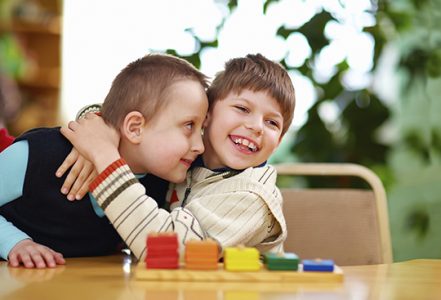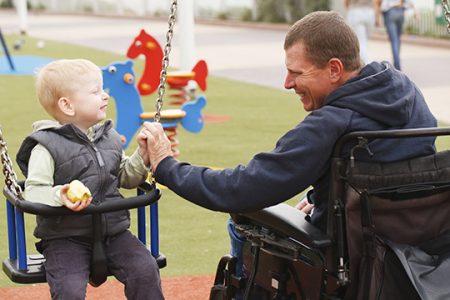 My cousin has a disability. My friend’s daughter has Rett Syndrome. My neighbour’s son has been recently diagnosed with a debilitating degenerative condition.
My cousin has a disability. My friend’s daughter has Rett Syndrome. My neighbour’s son has been recently diagnosed with a debilitating degenerative condition.
You would have to look pretty hard to find someone who isn’t related to, or know of, someone affected by a disability or diagnosis.
So it’s a good time to talk about differing abilities and why this type of diversity is good for everybody.
Please note: If your playgroup has an attending family with a recognised disability – you’ve probably got this covered! If not, it might be worthwhile discussing what might happen if a parent or child with a disability did enroll with your group.
Start by asking yourself if it would be easy for a family with an adult or child with a disability to join your playgroup – a room full of strangers – wondering if they will be welcomed and accepted.
It might be hard to start but it’s best to encourage open discussion so everyone feels at ease – small children have a knack for asking awkward questions that can leave an adult red-faced! However, it’s rare for a child to be malicious or knowingly rude – more often than not they are just curious!
So when welcoming a family with an adult or child with a disability at playgroup talk with them and draw on their own experience and knowledge about theirs or their child’s needs.
Moving forward, the adults may need to support children’s understanding of difference and to help them to accept differences in abilities.
Here are some things to consider when explaining differences in abilities to children:
 And here are some things playgroups can do to create a more accessible and inclusive playgroup environment:
And here are some things playgroups can do to create a more accessible and inclusive playgroup environment:
Remember introducing children to a range of people with varying abilities can have lifelong benefits for the individual and the community.
For help to include families with a family member with disabilities contact Playgroup WA on 1800 171 882 or email hotline@playgroupwa.com.au
Kath is a 40-year-old mum of three who works part time and enjoys catching up with other stressed-out mums in her spare time. Usually she’s racing against the clock to make her boys (+ husband) arrive anywhere on time and feels quite the talented mother when two of the three kids make it out of the house with shoes on!